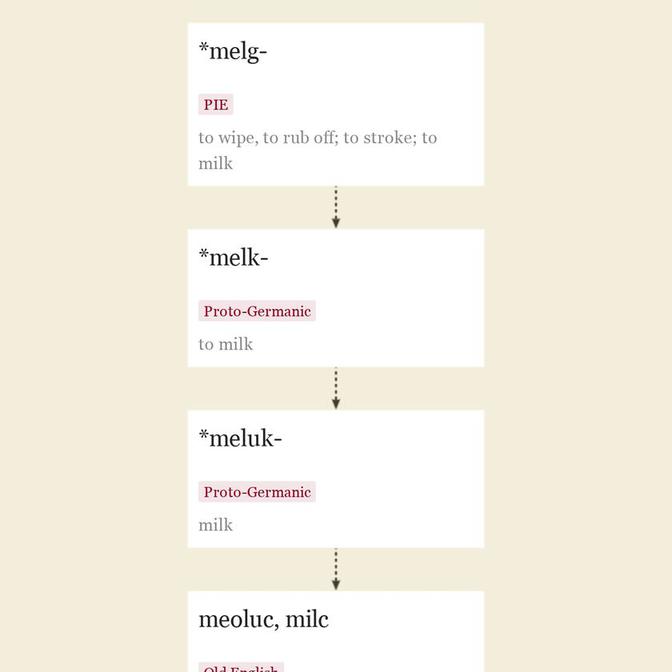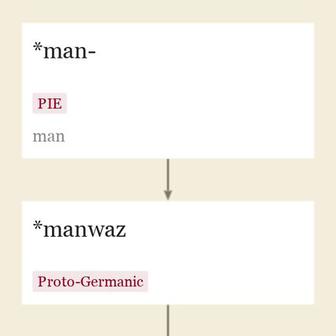milkman n.
"
Entries linking to milkman

"
Of milk-like plant juices or saps from c. 1200. Milk chocolate (eating chocolate made with milk solids, paler and sweeter) is recorded by 1723; milk shake was used from 1889 for a variety of concoctions, but the modern version (composed of milk, flavoring, etc., mixed by shaking) is from the 1930s. Milk tooth (1727) uses the word in its figurative sense "

"
Sometimes connected to root *men- (1) "
Specific sense of "
Man also was in Old English as an indefinite pronoun, "
As "
Man-about-town "
So I am as he that seythe, 'Come hyddr John, my man.' [1473]
MANTRAP, a woman's commodity. [Grose, "Dictionary of the Vulgar Tongue," London, 1785]
At the kinges court, my brother, Ech man for himself. [Chaucer, "Knight's Tale," c. 1386]
updated on January 17, 2019